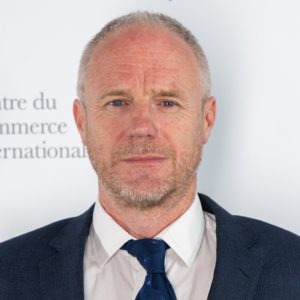Event Cinema
Wednesdays for the Planet | Organic Food – Hype or Hope?

Wednesdays for the Planet is a series of online screenings and virtual presentations with experts highlighting the natural world and other environmental challenges our planet faces. The virtual screenings are for educational purposes, non-profit and non-commercial.
Documentary
Organic Food – Hype or Hope?
Presented by Deutsche Welle Documentary, this film explores the growing demand in the western world for organic food. But do consumers always get what it says on the label? How can authenticity be verified? Is organic food automatically healthier?
Consumers are prepared to pay a significant premium for it. There are currently, however, no reliable tests for distinguishing organic from conventionally produced food. Farmers need to invest a great deal of time, energy and money to qualify as a producer of organic food. There is no proof, however, that organic food actually contains fewer contaminants than conventionally farmed products. There is no such thing as pollution-free food, and there are currently no tests available for reliably distinguishing between organic and non-organic food. That opens doors for lucrative labeling fraud, which in turn explains why there are far more organic eggs on the market at Easter than at any other time of the year. The statistics clearly suggest manipulation, but it is hard to obtain evidence due to the differences between the two production processes appearing to have little effect on the quality of the product. Irish dairy farmers, for instance, are not allowed to label their milk “organic” because the pasture land where their herds spend more than 300 days a year are treated with mineral fertilizers. Because cows are themselves bioreactors, however, the milk they yield contains no trace at all of fertilizer. On average, conventional Irish milk contains more omega 3 fatty acids and antioxidants than organic milk from Germany. The reason is the fodder; German organic farms may use only concentrates and silage as supplementary feed to increase milk output – which impacts negatively on the quality of the milk.
This documentary looks at researchers who are studying potential ways of reliably distinguishing between organic and conventionally produced food. And that is no easy task. Nearly every foodstuff requires a specific test. But one thing is certain: organic farming makes a major contribution to human welfare – by helping to mitigate climate change, protect the groundwater, conserve nature and promote animal welfare.
Online Screening
Experts

Gamini Manuweera
Programme Management Officer | Knowledge and Risk Unit | Chemicals and Health Branch | Economy Division | United Nations Environment Programme
Gamini Manuweera is managing the UNEP/GEF Project on Continuing Regional Support for the POPs Global Monitoring Plan under the Stockholm Convention. Before joining the Chemicals and Health Branch, he was a Programme Officer at the Scientific Support Branch of Secretariat of the Basel, Rotterdam and Stockholm Conventions for nearly 10 years leading the implementation of scientific support programmes on POPs pesticides under the Stockholm Convention and industrial chemicals under the Rotterdam Convention. Gamini has also been supporting of the scientific work of POPs Review Committee (POPRC) of the Stockholm Convention, and Chemical Review Committee (CRC) of the Rotterdam Convention.
Gamini comes with over two decades of experience at national level in sound management of pesticides. He has been involved in establishing the pesticide management infrastructure of Sri Lanka and led its implementation for over 15 years as the Registrar of Pesticides to significantly reduce pesticide related problems in the country. He has also been actively involved in research related to pesticide management and teaching on chemical toxicology. His academic expertise is in the field of eco-toxicological chemistry.

Alexander Kasterine
Senior Advisor | International Trade Centre (UNCTAD/WTO)
Alexander Kasterine is a Senior Advisor at the International Trade Centre (UNCTAD/WTO). He manages capacity building and research projects in agriculture and natural resource value chains with focus on livelihoods, market development, gender, climate change resilience and biodiversity management. Alex holds a Ph.D. in Agricultural and Natural Resource Economics from Imperial College, London.
Virtual Presentations
Links
- Popular Initiative “For a Switzerland without artificial pesticides” | June 2021
- Organic Foods – Are They Safer? | Food and Agriculture Organization of the United Nations (FAO) | March 2021
- Environmental and Health Impacts of Pesticides and Fertilizers and Ways of Minimizing Them | United Nations Environment Programme (UNEP) | January 2021
- Is Organic Healthier? | BBC | September 2020
- Organic Products | ITC
- Sustainable Agriculture and Biodiversity | ITC
- Organic Farming and Climate Change | ITC | 2007
- Does Organic Farming Really Harm the Climate? | Biovision | December 2019
- Going Clean and Organic Boosts the Income of Rural Farmers in Lao PDR | ITC | January 2014
- Rotterdam Convention
- Stockholm Convention on Persistent Organic Pollutants
- Research Institute of Organic Agriculture (FiBL)
- Bio Suisse
- Wednesdays for the Planet
